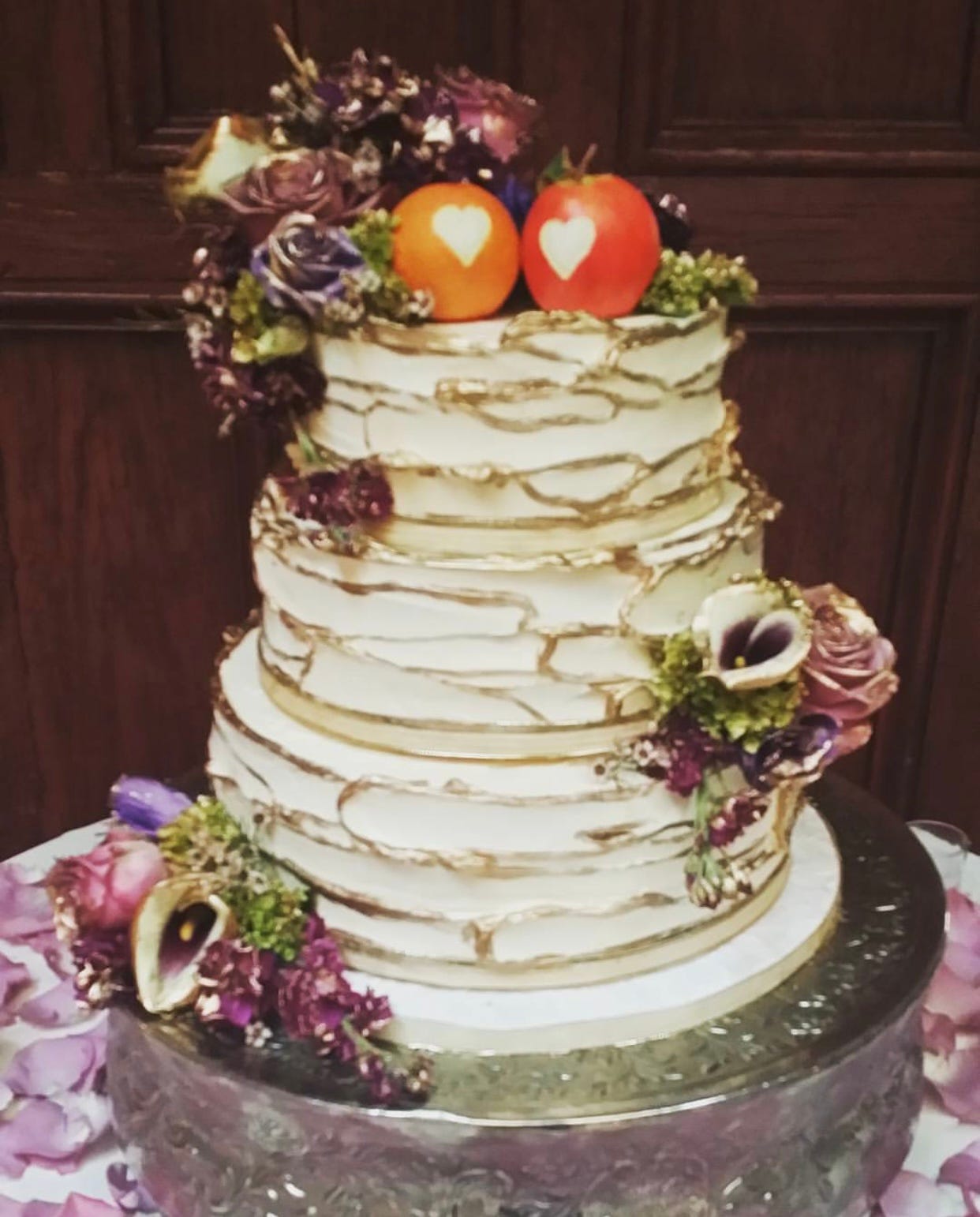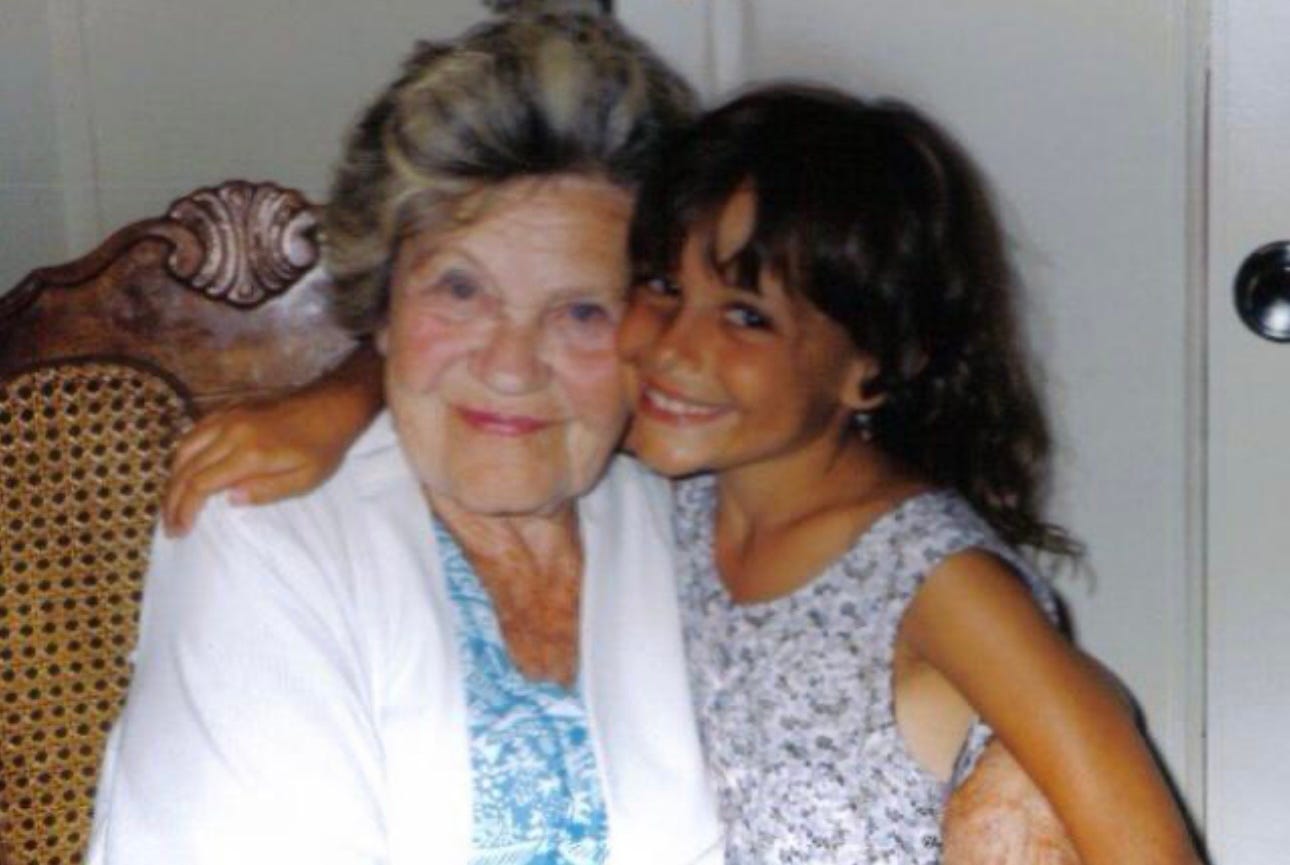Grandma Knows Best: The Generation That Survived Polio Has Something to Say About Vaccines
Description
My husband (Ethan) and I always joke that our marriage is straight out of a Woody Allen film—neurosis and all, but with actual happiness. He’s white Anglo-Saxon Protestant stock who made their way through the Ozarks by way of Missouri (which his family pronounces “Missour-ah”). I’m a Brooklyn Jew, granddaughter of Holocaust survivors from Eastern Europe. We like to say we’re an “Apple and Orange”—my Big Apple roots meeting his Golden State sunshine. We even topped our wedding cake with handcrafted apple and orange figurines from Etsy, and yes, the cake itself alternated between orange-almond and apple-flavored layers. We committed to the bit.

I’ll never forget when, early in our relationship in 2008, Ethan casually mentioned “Papaw Pidge” in conversation. I sat there, genuinely confused, trying to decode what sounded like an alliterative character from a children’s book. It took several minutes before I understood he was talking about his great-grandfather, George, lovingly nicknamed Pidge. You see, we didn’t have “Papaws” or “Mamaws” in South Brooklyn. We had bubbes and zaydes—or in my Polish household, babcia. My Italian friends had nonnas who made Sunday sauce that could make you weep with joy. But Papaw Pidge? That was new territory.
Yet despite our different labels—whether you called them Papaw, Bubbe, Nonna, or Abuela—one truth transcends all cultural boundaries: grandparents command our universal respect. In every culture, we revere our elders not just out of tradition, but out of recognition that experience itself is a form of wisdom we cannot Google, cannot learn from books, cannot gain without living through it. They carry the weight of lived experience, of years that have shown them things we “youngsters” can barely imagine. They’ve witnessed history unfold, survived challenges we only read about, and accumulated the kind of hard-won knowledge that only comes from having been there.
There’s a reason every culture has some version of “respect your elders”—from filial piety in Asian cultures to the African proverb “what an old man can see while seated, a young man cannot see standing.” We inherently understand that those who’ve walked the path before us hold knowledge we need.
Which makes them the perfect messengers for one of today’s most critical health conversations.
Grandparents for Vaccines just launched nationally, mobilizing America’s 67 million grandparents to stand up as voices for their grandchildren’s safety—and we could not be more obsessed with this simple yet brilliant concept: the generation that survived these diseases is now fighting to make sure their grandchildren never have to.
These grandparents are sharing their lived experiences—not statistics from textbooks, but memories seared into their hearts. They remember iron lungs in hospital wards. They remember classmates who never came back to school after polio summer. They remember the fear that gripped parents every time a child developed a fever, wondering if this was the one that would steal their baby away.
Already, the stories pouring in are powerful: One grandmother recounted how her twin brother and she both contracted polio at age six—he died, she was paralyzed but recovered. Another shared her experience as a young nurse caring for an eight-year-old girl who died of measles. A grandfather described watching an eight-year-old boy die an agonizing death from meningococcal sepsis.
My colleague Nancy Haigwood put it perfectly: “I love this idea. I am one of these, born in 1951, was infected with measles, mumps, chicken pox. Not polio. But measles nearly got me—three weeks in bed with cold baths to bring down the fever. And when I have attended the family reunion, especially post-COVID, there is definitely more interest in vaccines, yet I haven’t really made it personal, and I need to, as one of the grandparents.”
This is exactly why the movement is so powerful. These aren’t abstract warnings or political talking points. These are first-hand accounts from people who’ve earned our trust not through credentials or titles, but through decades of loving us, caring for us, and accumulating the wisdom that only comes from having witnessed life’s hardest truths.
On Grandparents Day this year, volunteers from coast to coast reached out to local media with their stories. Real stories. Their stories. Because who better to remind us of what we stand to lose than those who actually lived through the losing?
“One of my earliest childhood memories was being very sick with the mumps. I can’t imagine my granddaughter experiencing any of the childhood diseases that I endured before vaccines were available. Every day, I have the peace of mind that comes from knowing she is protected, and I am committed to ensuring all grandchildren have the same opportunity for lifelong health.”
I remember listening with total attention to every single word that came out of my Grandma Olga’s mouth. Her smile lines and wrinkles were a map of everything she’d endured. There’s something pure about the love between grandparents and grandchildren—untouched by the exhaustion of daily parenting, unmarred by our polarized media landscape. Maybe it’s evolutionary, this bond that skips a generation, but it’s powerful.

And that’s what makes this movement so smart. Grandparents have the lived experience. Grandchildren still have the capacity to listen. Together, they cut through the noise.
These grandparents all share one truth: they remember. They remember the empty desks in classrooms. They remember the fear. They remember what we’ve been lucky enough to forget. They aren’t asking for much. They’re simply saying: We’ve seen these diseases. We’ve buried children because of them. We now have the tools to prevent them. Please listen.
Interested in learning more? You can <a h





